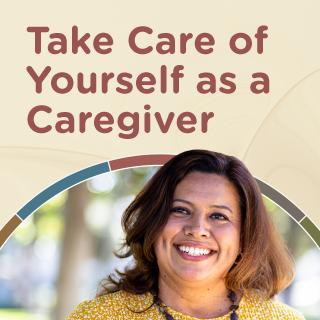The Alzheimer’s Caregiver’s Guide: Support, Strategies & Self-Care
Share IT

Launch Your Dream Website with Us!
Click Here to Get in touch with Us.
Categories
Alzheimer’s Caregiving Tips
The Care Journey: Assisting Family Members Affected by Alzheimer’s
Alzheimer’s disease (AD) is a neurological ailment that progresses over time and poses special problems for both patients and carers. The need for assistance and care grows as the illness worsens. This blog post gives you the information and tools you need to manage the caregiving process for people with AD.
Thank you for reading this post, don't forget to subscribe!Table of Contents

Comprehending Alzheimer’s Disease Stages:
Alzheimer’s Caregiving Tips
AD usually develops in phases, each requiring different degrees of care:
- Early Stage: People may have some memory loss, concentration issues, and personality changes. With some assistance, they can frequently continue to be fairly autonomous.
- Middle Stage: Daily duties like cooking and money management may become difficult as memory loss is more severe. It could be necessary to provide supervision and help with activities of daily living (ADLs).
- Late Stage: Total reliance on carers is reached. Physical restrictions, behavioural shifts, and communication problems are frequent.
The Multifaceted Responsibility of the Carer Role
Alzheimer’s Caregiving Tips
The well-being of people with AD is greatly dependent on their carers. Possible duties could be:
- Providing Daily Care: Helping with activities such as eating, dressing, taking a shower, and managing medications.
- Managing medical care: includes scheduling doctor’s appointments, controlling prescription drugs, and speaking out for the needs of the patient.
- Creating a secure atmosphere, guarding against falls, and controlling wandering behaviour are all part of ensuring safety.
- Emotional Support: As cognitive impairment advances, offering understanding, emotional support, and friendship.
Alzheimer’s Caregiving Tips
Learning how to communicate effectively and standing up for the interests and rights of patients in a variety of contexts are two key components of advocacy.
Putting Together a Support Network:
Alzheimer’s Caregiving Tips
Sharing the Load: Caring for others can be mentally and physically taxing. Creating a network of support is essential:
- Family and Friends: Ask for assistance with errands, emotional support, or respite care from family and friends.
- Support Groups: Making connections with other carers can provide a sense of community, shared experiences, and insightful counsel.
- Professional Services: For short-term breaks, take into account adult daycare centres, in-home care services, or respite care facilities.
Establishing a Secure and Helpful Environment
Alzheimer’s Caregiving Tips
Changing the surroundings can maximise wellbeing and safety:
- Minimise Clutter: To avoid confusion and encourage simple navigation, minimise clutter.
- Boost illumination: To increase safety and lower the risk of falls, make sure your home has enough illumination.
- Eliminate Safety Risks: Put away hazardous materials and lock up medicine cabinets.
- Establish Predictable Routines: To foster a sense of security and familiarity, establish routines for everyday activities.
Successful Communication Strategies:
Alzheimer’s Caregiving Tips
Good communication is essential while providing care for an individual with AD:
- Speak Slowly and Clearly: Steer clear of complicated directions and use brief, straightforward language.
- Keep Eye Contact: Pay attention to non-verbal clues and facial expressions to gauge their needs.
- Confirm Their Emotions: Provide comfort and acknowledge their feelings, even if they don’t make sense.
- Be Understanding and Patient: Give yourself more time to communicate and try not to lose your cool.
Self-Care: The Value of Personal Care
Alzheimer’s Caregiving Tips
It can be emotionally taxing to provide care. Your health and capacity to care for your loved one depend on you taking care of yourself. Here are some pointers on self-care:
- Maintain Healthy Habits: To reduce stress and look after your personal health, make eating well, exercising, and getting enough sleep a priority.
- Seek assistance: Don’t be afraid to ask friends, relatives, or a therapist for emotional assistance.
- Plan Your Respite Care: Give yourself time, even if it’s only a few hours, to rest and rejuvenate.
- Discover Interest-Based Activities: Take part in social events, hobbies, or anything else that makes you happy.
In summary: A Trip Filled with Love and Compassion
Alzheimer’s Caregiving Tips
Although providing care for someone with AD can be difficult, it is also a path filled with compassion and love. You may empower yourself to give your loved one the best care possible while taking care of yourself during this journey by learning about the disease, developing a support network, and prioritising self-care.
Notice: The information in this blog post is general in nature and is not intended to replace expert medical advice. For specific advice on how to care for someone with AD, always seek the advice of a healthcare professional.

Launch Your Dream Website with Us!
Click Here to Get in touch with Us.





























































Recent Comments